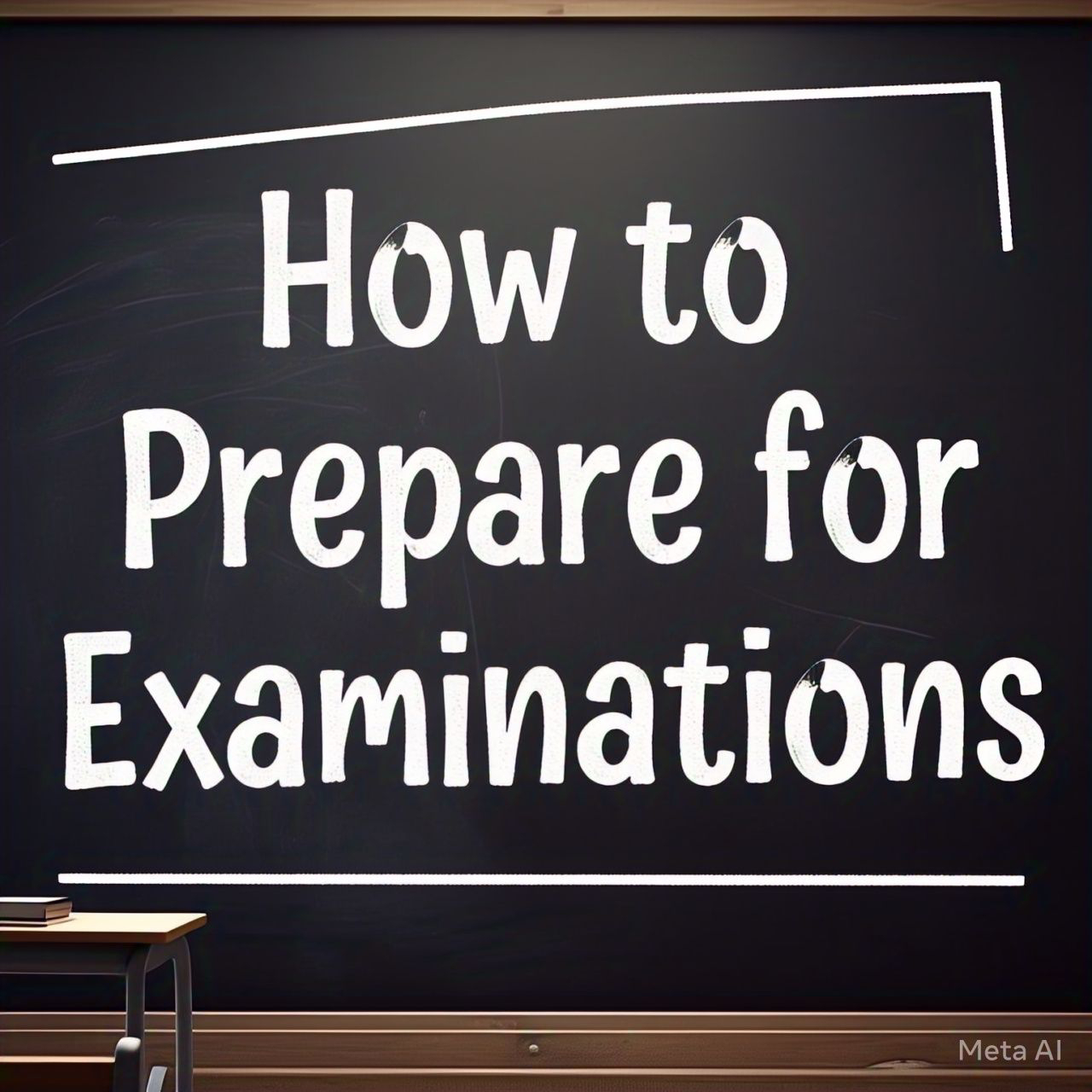How to Prepare for Examinations – A Simple Guide for Students
How to prepare for exams - a simple guide for students
Exams are an important part of a student's life. They test what you have learned and help in progressing in your studies. Good preparation for examinations can reduce stress and improve your performance. There is a step-by-step guide to help students prepare for their examination effectively.
1. Understand the exam pattern
*Before starting the study, you should know the details of the exam.
*Watch the course carefully.
*Find the types of questions (multiple choice, brief answer, essay, etc.).
*Ask your teacher if anything is unclear.
*Look at the previous question papers to understand the pattern.
*When you know what is expected, you can prepare better.
2. Make a study plan
*A good study plan helps you cover all subjects without stress.
*Write the number of days for the exam.
*Divide your subjects according to priority (first difficult topic).
*Set daily study goals.
*Keep time for amendment.
*Avoid the last minute cramming.
A well-employed timetable helps you to stay organized and reduce the pressure of the final-minute.
3. Find a good study environment
*Your study place should be calm and comfortable.
*Burn a well and choose a peaceful place.
*Keep your desk clean and free from disturbing.
*Sit on a comfortable chair with straight back.
*Keep all the necessary materials (books, notes, pens) nearby.
*A good study environment helps you focus better.
4. Study actively, not passively
Active study helps you understand subjects better.
Read only - Write the main points.
Use diagrams, charts and flashcards.
Explain the subjects to yourself or a friend.
Present the chapters in your words briefly.
Ask yourself questions while studying.
Connecting with the ingredients helps you remember it for a long time.
5. Take a brake and stay fresh
It is not effective to study for a long time without a break.
Study for 45-60 minutes, then take a short break.
During the break, stretch, walking or drinking water.
Avoid using your phone or watching TV.
Deep breathing exercises can help your brain relax.
Short brakes refresh your brain and improve concentration.
6. Use various study techniques
Different methods help you understand and remember better.
Mind Maps: Draw the connection between ideas.
Mnemonics: Use small formulas or rhyme to remember information.
Group study: Discuss with friends to clarify doubt.
Practice letter: Solve old question papers to get acquainted with the format.
Trying various study techniques can make learning fun and effective.
7. Stay healthy and take care of yourself
Your body and mind require proper care to perform well.
Eat healthy foods like fruits, vegetables and nuts.
drink plenty of water.
Avoid junk food and excessive caffeine.
Get at least 7-8 hours of sleep every night.
Exercise daily, even for 15-20 minutes.
A healthy body supports a healthy brain, which helps to study better.
8. Revise regularly
*The key to remember the amendment is what you have studied.
*Modify each subject at least 2-3 times before the exam.
*Create small notes for quick modification.
*Use flashcards for important points.
*Try to teach someone else - it helps to reinforce your learning.
*Regular amendment helps strengthen your memory and confidence.
9. Stay positive and confident
*A positive attitude is important for success.
*Believe in yourself and your preparation.
*Avoid negative thoughts and unnecessary stress.
*Imagine performing well in the exam.
*Surround yourself with supportive people.
*Do not compare yourself with others.
*Self -confidence and a positive mentality can greatly improve your performance.
10. Manage time during exam
*Time management in the examination hall is very important.
*Read the question paper carefully before starting.
*Plan how much time to spend on each question.
*First answer easy questions to save time.
*Keep an eye on time and do not get stuck on a question.
*Leave some time at the end to review your answers.
*Good time management helps you complete your exam efficiently.
11. Avoid last minute nervousness
*Last minute terror can forget you what you have studied.
*Do not try to learn new topics on the last day.
*Modify what you already know.
*Get good sleep at night before the exam.
*Stay calm and relaxed before entering the exam hall.
*A cool brain performs better in the exam.
12. Learn from your mistakes
*After the exam, analyze your performance.
*Once the result is finished, check your answers.
*Learn from any mistakes you made.
*Work on improving weak areas for future exams.
*Take feedback from teachers.
*Learning from mistakes helps you improve the next exam.
Examination preparation is not only about difficult studies - it is about studying smart. With proper plan, discipline and self-care, any student can perform well in the exam. Stay focused, trust yourself, and give your best attempt.
good luck with your exams! Stay confidently and do your best!




Comments